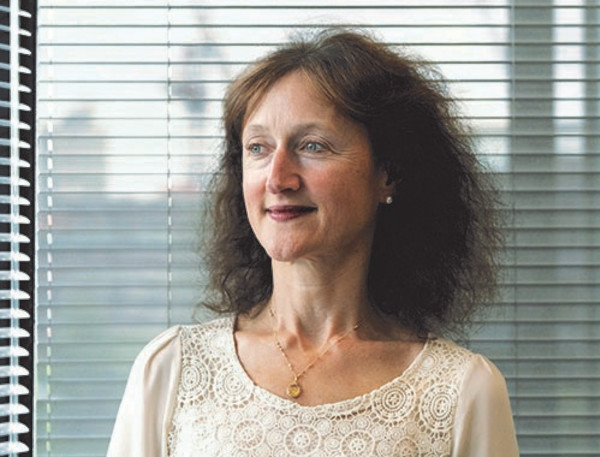

When Charlotte Ransom retired after spending 20 years at Goldman Sachs, she was unwilling to entrust her life savings in the hands of any wealth manager.
This is what prompted her to co-found Netwealth Investments in 2015, a UK-based discretionary wealth manager.
She says: “When I left and retired from Goldman I was thinking about a private wealth manager for my own wealth; I knew too much to want to give my money to anybody else.
“Equally I did not want to manage it myself. That was the thing which started sowing the seeds for [Netwealth] and I thought, I am sure this could be done better if we started from the beginning,” adds Ms Ransom.
Originally a linguist, Ms Ransom was lured into the industry after she felt disgruntled at how little her languages mattered to the types of profession she thought she wanted to pursue.
Something else that inspired Ms Ransom to pursue a banking career was the fact that several of her male friends were attending Milkround networking events.
“So I decided I would go along to some as well and find out more. I became more and more intrigued by what that had to offer.”
Ms Ransom explains that Netwealth caters to both the affluent and high net worth community. The minimum level of capital required to invest is £50,000
Netwealth offers seven portfolios in three currencies: sterling, euro, and US dollar.
Ms Ransom says Netwealth is able to offer clients advice if they need it, but a lot of the communication is done with the use of technology.
The team includes client advisers and portfolio managers. Some of them have spent several years at private banks and financial institutions including UBS, Schroders and Julius Baer.
While technology forms a key part of the wealth manager’s proposition, Ms Ransom insists it is not a robo-adviser.
“We are not offering advice through our technology, nor are we robotically providing asset allocation,” she adds.
She cites Netwealth’s Network proposition as a key method in which the manager differentiates itself in a crowded marketplace.
To explain how it works, she uses the example of how if a client investing £500,000 or above invites somebody in their network, then the client and the person being invited both face the lowest fee of 0.35 per cent.
If the client is investing between £50,000-£250,000, the client pays a higher fee of 0.65 per cent.
Ms Ransom says: “Let’s say you came into that with £150,000 cash saved into an Isa, and you were to invite your spouse into your network and he had £150,000 of Isas savings, together you have got £300,000 and you both drop onto the middle fee of 0.5 per cent.”
She adds that if the client were to then invite a parent who has £200,000 saved into their pension, the network has £500,0000, meaning everybody in the network now faces the lower fee.
Ms Ransom adds: “That for me is a powerful indicator of what technology can do and the benefit of pooling assets and driving fees down.”
She says Netwealth can afford to charge lower fees because of this network and not employing an excessive amount of staff.
“If you look at traditional players, they have a very significant cost base they have to maintain. They have bricks and mortar, expensive sales forces,” she says.
“It is extraordinary that we still have firms charging between 2-3 per cent per annum. You have firms like ours who are charging more like 0.7 per annum for clients with £500,000 or more,” she says.
According to Ms Ransom, several people are neglecting their pensions while calculating their wealth or investable assets.
“If you ask people how much money they have, they may not think about their pension, because it is parked as something I am not going to touch until I am 65, maybe even later.”
In April 2019, Netwealth launched a managed portfolio service to allow financial advisers to access its investment proposition for the first time.
“Given we are a firm that believes in advice, we wanted to make sure we had an offering that would be simple for IFAs to work with,” she says.
The MPS is available through the Transact platform, and gives advisers and their clients access to seven risk-return portfolios, with strategic allocations to currencies and passive instruments including exchange traded funds.
Ms Ransom suggested Netwealth could be distributing the MPS on other platforms in the future.
“By putting our MPS on Transact, IFAs that use the Transact platform have direct access to Netwealth and it gets consolidated down into their reporting. This is a nice way to deliver the portfolio service to IFAs and is consistent with the notion of the end client both getting Netwealth portfolios and receiving advice through the IFA community.”
She adds: “One question would be whether we decide to work with more platforms other than Transact. For now we are trialling it with Transact and we will see how that goes.”
Saloni Sardana is features writer at FTAdviser and Financial Adviser



